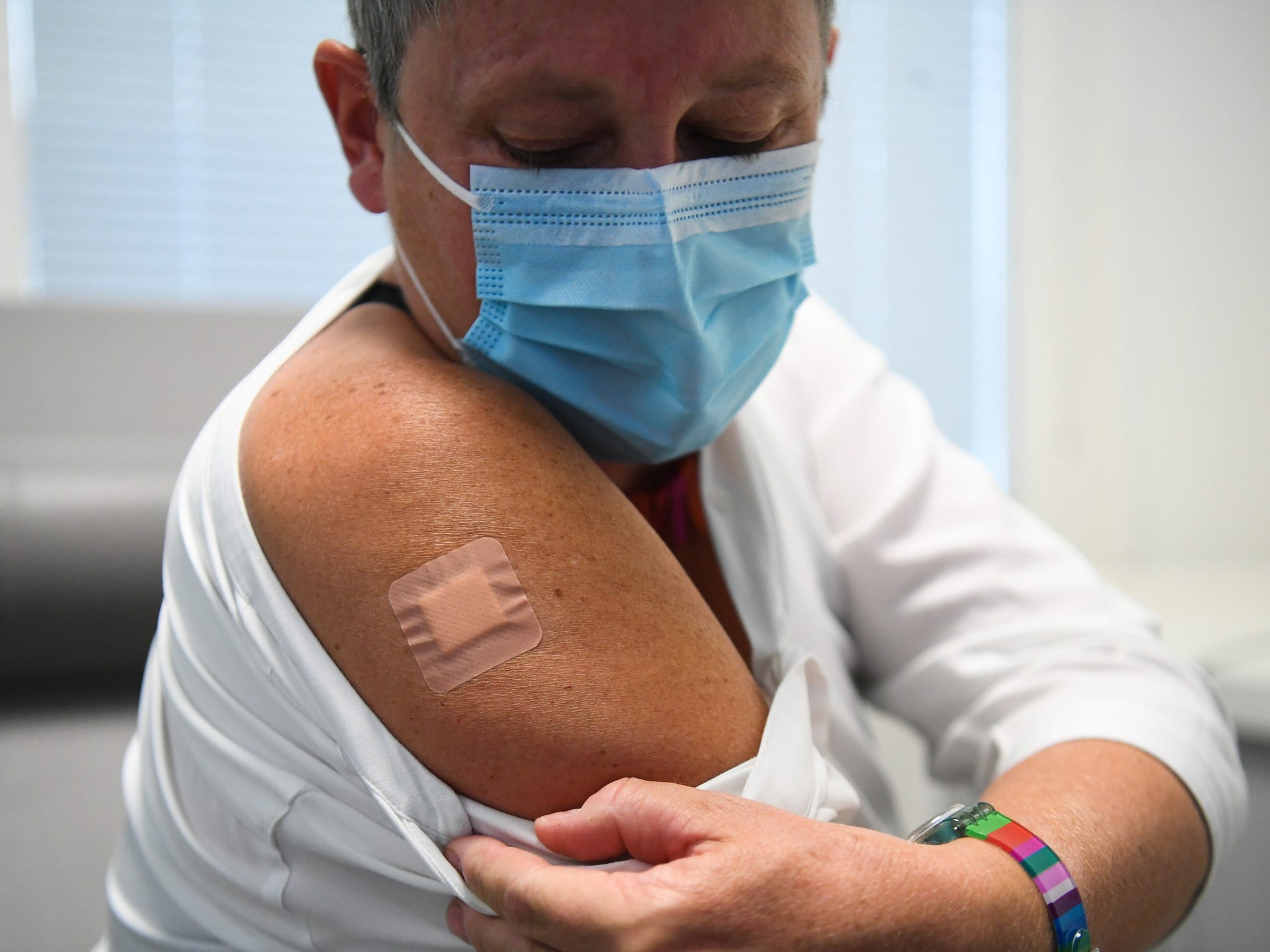
Kirsty O'Connor/PA Images via Getty Images
- Early trial results published in The Lancet suggest The University of Oxford and AstraZeneca’s COVID-19 vaccine produces an immune response and is safe in older adults.
- This is important because older adults are more likely to develop severe cases of the virus, and some vaccines aren’t as effective on them.
- Older people who took part in the Oxford COVID-19 vaccine trial were less likely to have side effects than younger participants, researchers said.
- Phase 3 trials, which will show whether Oxford University and AstraZeneca’s vaccine is effective at preventing COVID-19, are ongoing, but researchers said the early trial results were “encouraging.”
- Visit Business Insider’s homepage for more stories.
The COVID-19 vaccine candidate being developed by the University of Oxford and AstraZeneca produces an immune response and is safe in adults over 55, according to promising early trial results published in The Lancet on Thursday.
The data from 560 trial participants suggested the vaccine was “well tolerated” across all age groups, and had similar effects on the immune system of both younger and older adults.
This is positive news because the type of vaccine the group is working on — known as an adenovirus-vector platform — has either not been tested in older people, or when it has been tested, it has shown worse results compared to younger people.
None of the participants in the trial had any unexpected, serious adverse reactions.
Whether the shot is effective at protecting people against COVID-19 remains unknown, but results from Oxford’s Phase 3 trials are expected in a matter of weeks.
"We're getting close and it's definitely going to be before Christmas," Andrew Pollard, professor of paediatric infection and immunity at the University of Oxford and director of the Oxford Vaccine Group, said in an interview with the Radio 4 Today Programme on Thursday.
"I think the reason we are so delighted is that the immune responses look exactly the same, even in those ... over 70 years of age," Pollard said.
"The other thing that we found, which I think is extremely important is that the vaccine is extremely well tolerated in those who are over 55.
"We do know with these vaccines that adults tend to feel a bit ropey in the day after they've been vaccinated. But that was very very much less, particularly in those who are over 70," Pollard said.
Scientists from the University of Oxford and AstraZeneca began working on the vaccine in January, and started human trials in April. Phase 3 trials studying the effectiveness of the vaccine started in August.
The Oxford-AstraZeneca group is behind Pfizer and Moderna — which both announced positive results of their Phase 3 COVID-19 vaccine trials earlier in November — because of a drop in COVID-19 cases over the summer in countries where trials are ongoing. This means trial participants were less likely to contract COVID-19.
"We have to have some cases occurring, at least in the control group in the study, in order to be able to assess whether the vaccine works", said Pollard.
The UK government has already ordered 100 million doses of the vaccine, alongside 40 million from Pfizer and 5 million from Moderna.
But there is no competition between the drugmakers, Pollard explained.
"We have a lot of people to protect around the whole globe," he said.
Additional reporting by Dr. Catherine Schuster-Bruce.
